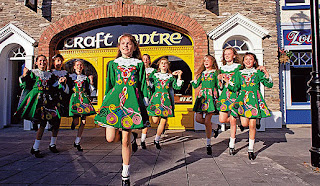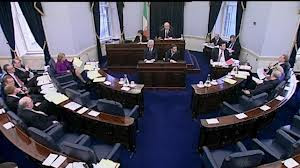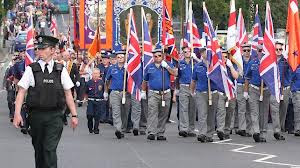Awrigh’ then?
I’m Daisy and me and my other half, Fred, we live in the East End and I gotta say, this time of year is great, innit? You hear people on the bus or down the pub moaning on about the weather this and the weather that - too wet, too cold, too miserable. Dunno what they’re talking about. Look at the weather we’s having now - Britain gets some of the best weather in the world. It’s that warm this week, I got to nip in the house and change my blouse twice a day. My Fred says I sweat more than a Grand National mare. Cheeky bleeder.
Fred’s a member of the KBWA , which means the Keep Britain White Association, and he loves this time of year, same as me. That’s because the KBWA have their big march around now. Every 13th July, my Fred gets down his KBWA outfit which is still in its cling-film wrap after me sending it to the cleaners and know what? That KBWA uniform of his, it’s that dazzling white you’d need sunglasses, the glare off it. White shirt, white trousers, white shoes, white tie, white cap. He really does look a proper treat dressed up, and you should see him and his mates when they’s all together, marching in step with the big drum beating. He don’t say it - my Fred don’t talk that much - but I can tell he’s as proud as Punch when he looks at himself in the mirror and when he steps out down the road. And I’m proud as Punch of him an’ all.
But times is changed, ain’t they? Used to be, years ago, 13th July were a nice day out - know what I mean? I’d make sandwiches and take the kiddies and everyone would cheer the marchers and we'd meet up with Fred after he’d finished. We’d sit down somewhere nice, park bench maybe or even on the grass, and so would all the other KBWA people and their families, and somebody’d get ice-cream and maybe a few beers and everyone knew everyone else. It were a proper day out for all the family then. Lovely, it was.
But not now. Now you got all these people, these immigrants - that’s what we got to call them now, immigrants - all these immigrants coming here and saying we’s racists and they don't like 13th July. . Writing to the paper and demonstrating and even lying on the road to stop Fred and his mates marching past. Makes me proper sick it does. You’d think it weren’t the Queen’s Highway and they wasn’t entitled to walk along our own Sovereign’s highway whenever and wherever they want. And then they say this is a free country! What I say is, if you don’t like it, don’t look at it. Stay at home and watch the telly or something. But ain’t no chance of that. Oh no. These immigrants, they’d rather come out and shout stuff at us and say they’re offended and hold up their placards about equality and respect and every bleeding thing you could think of.
Equality - there’s a laugh. Shows you how much these people know about our country and the way it works. Shouldn’t be surprised if next thing they’ll be complaining about our Sovereign Majesty the Queen, God bless her, ‘cos she aint, you know, coloured. Same as them. Shows how ignorant they is, my Fred says. Cos it’s written down in our constitution what the Sovereign must always be a white person. That’s why we respect her so much. And she has to be married to a white person an' all, or the lineage an’ that sort of thing would b, y’know, polluted, wouldn’t it?
Tell you straight, the whole thing makes my blood boil. And Fred’s. They come here and we give ‘em jobs (them as is willing to work, which ain’t all, let me tell you) and we give ‘em our NHS and we give ‘em grants and free houses and everything. . And what do we get back? Complaints, that’s what. Moans. And lying in the road and sayin’ we’s not welcome. In their area!
That’s why my Fred joined the KBWA. We love our country. Just breaks our hearts, way these people come in and then turn round and say we’s anti-immigrant. No we’re not. We just want to protect our British culture and our heritage and that. We’d like to make 13th July a festival, sort of, for everybody. If them immigrants is willing to accept that and acknowledge Her Majesty as their sovereign and adopt our customs and culture, then right, no problem. But not them. So what I say is, if they don’t like it, let ‘em go back where they come from.
Meanwhile, long as they is here, show some respect for Her Majesty, respect for our country, respect for our culture. That’s how it were in the old days - the bands, the marches, the speeches. It was just a proper lovely day out for everyone, kiddies n’ all. Only then these people came along, showed no respect, got everyone riled up, blocked roads. Spoiled everything. Bleedin’ disgrace.
Anyway, I’m just hoping this weather lasts until 13th, cos when it’s sunny on the day it’s just lovely. Although you gotta be prepared, like the boy scouts and that, so maybe I’ll bring my Union flag umbrella with me just in case. Mind you it’s still a proper nice day, 13th, no matter what the weather. Perfect it would be, only for them immigrants with their posters and Respect Our Area and blah-de-blah. Tell you one thing: they won’t put me and my Fred or any of his mates off. Not an inch. We love July 13th more than anything. Except maybe Her Majesty. Ain’t no amount of protesting scum going to change that.


























